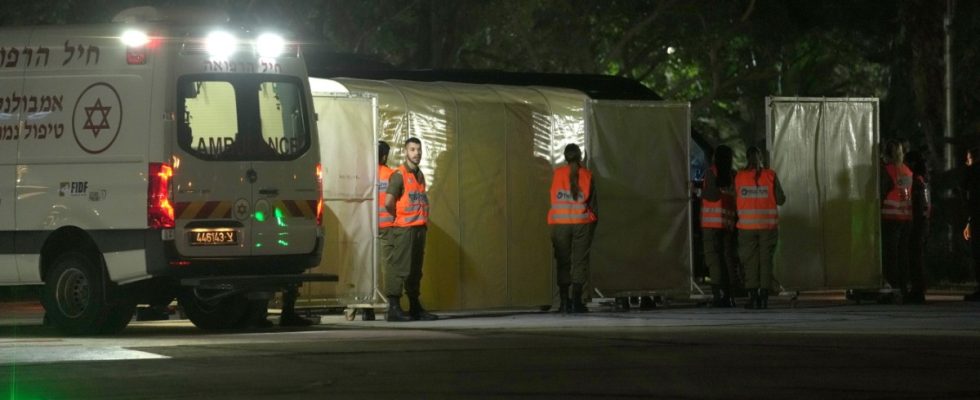Yoni Asher has won his personal battle after all: When the names of the first 13 Israeli hostages released by Hamas were finally revealed on Friday evening, those of his wife Doron Asher Katz, 34, and his two and four year old daughters Aviv and Raz there. The father recognized his relatives in a video distributed by Hamas, in which they were seen being abducted by gunmen in a golf cart. In interviews, including with the South German newspaperAsher, 37, had said again and again: “Yes, I’m sure they’re alive. And that’s why there’s a chance to save them.”
Asher’s 67-year-old mother-in-law, Efrat Katz, was also kidnapped in the Hamas terrorist attack in southern Israel on October 7th. She was shot dead by the terrorists before they crossed the Gaza border with their prisoners. This only became known later. Asher’s wife as well as their two daughters and mother-in-law are dual nationals with German citizenship. That’s why the real estate expert left no stone unturned to get the German government on board with as much publicity as possible and lots of interviews.
He spoke to both Chancellor Olaf Scholz and Federal Foreign Minister Annalena Baerbock at meetings with the hostages’ relatives. He also drew attention to the fate of his family in front of thousands of people at a solidarity event at the Brandenburg Gate.
Official confirmation from the federal government for the family’s release was initially pending. According to consistent information from the Israeli media and the South German newspaper But together with Margalit Mozes, 78, they crossed the border from the Gaza Strip in Rafah into Egypt and were taken from there to Israel. All four are also Israeli citizens and were kidnapped from Kibbutz Nir Oz to the Gaza Strip in the Hamas terrorist attack on October 7th. Egyptian television channels showed images of the hostages crossing the border in Rafah. Other residents of Nir Oz then identified the majority of the 13 hostages released.
The federal government campaigned intensively for the release of the hostages with German citizenship. Foreign Minister Baerbock set up a special crisis team immediately after the Hamas attack on Israel on October 7th. The team, led by the Federal Foreign Office’s crisis officer, Jens Jokisch, has been working around the clock to free the hostages. The security authorities, i.e. the Federal Criminal Police Office and the Federal Intelligence Service, are closely involved. The special staff maintains close contact with the relatives of those abducted and with those involved in negotiations with Hamas and other militant Palestinian groups.
The Foreign Office deployed its own personnel to Israel, where the military and secret services worked to locate the hostages. The diplomats are also in constant communication with Qatar, whose Prime Minister and Foreign Minister Mohammed bin Abdulrahman al-Thani is the most important negotiator with Hamas; the political leadership of the terrorist organization is based in Doha. Baerbock last met him on November 11th in the Saudi capital Riyadh on the sidelines of the joint summit of the Arab League and the Organization of Islamic Cooperation. There is also close coordination with Egypt, whose military intelligence service also has contacts with militant groups in the Gaza Strip.
The government is reluctant to provide information about those abducted
Baerbock had already met relatives of people who had been abducted by Hamas to the Gaza Strip on her first visit to Israel a few days after the terrorist attack, as well as on two further trips to the region since then and also in Berlin. The federal government assumes that there are a low double-digit number of German citizens among the approximately 240 hostages; several women were kidnapped along with their children. All those affected also have an Israeli passport.
The federal government is very cautious about providing information about those affected in order to protect the hostages and their families. Information that becomes public could strain negotiations for the release of hostages held in the Gaza Strip. Diplomats involved in the talks have repeatedly pointed this out.
One of the problems is that people find themselves under the control of several different groups and in different places. Agreements with one group can affect talks with another that demand Israel release prisoners and other considerations. Federal President Frank-Walter Steinmeier and Bundestag President Bärbel Bas also want to meet relatives of the hostages on their upcoming joint trip to Israel.

